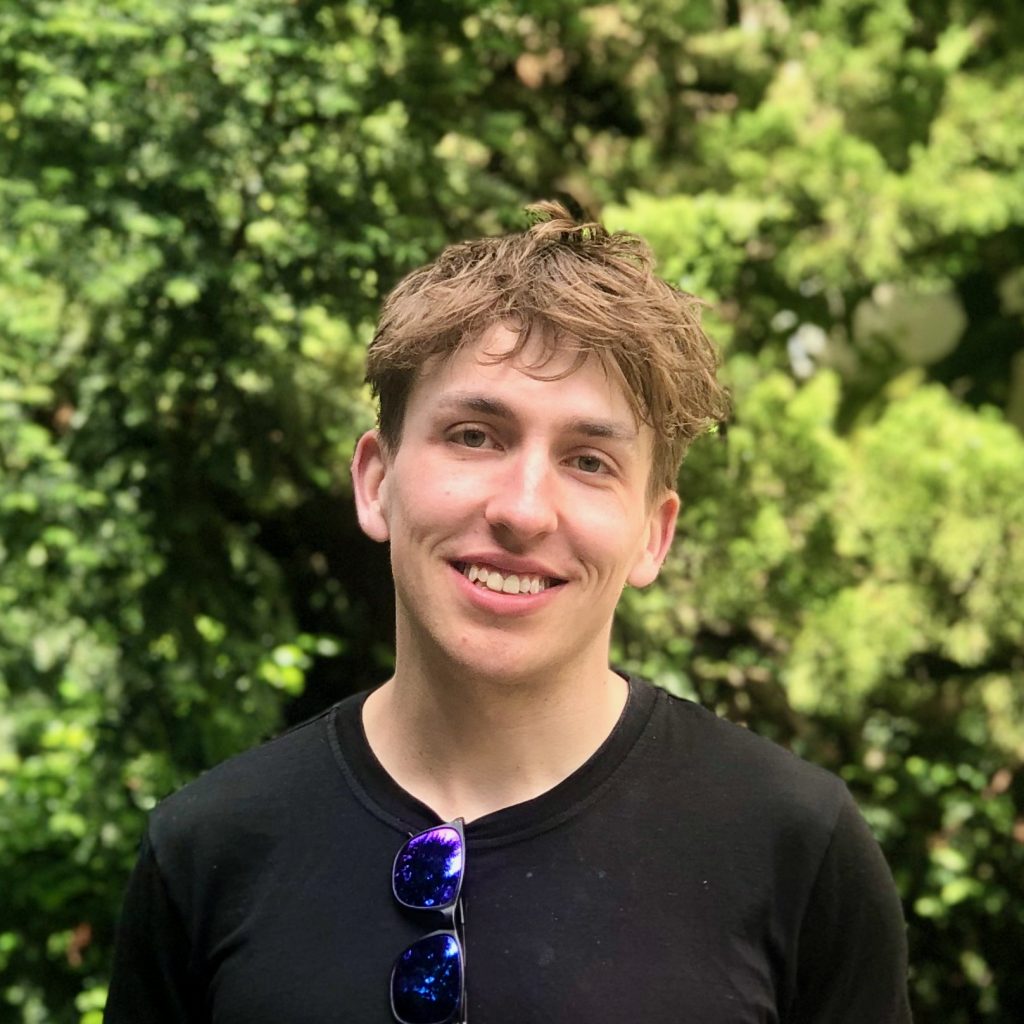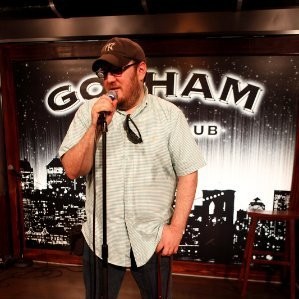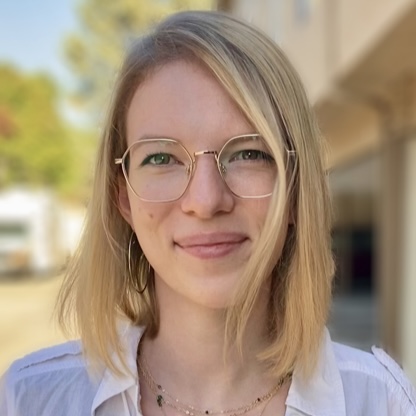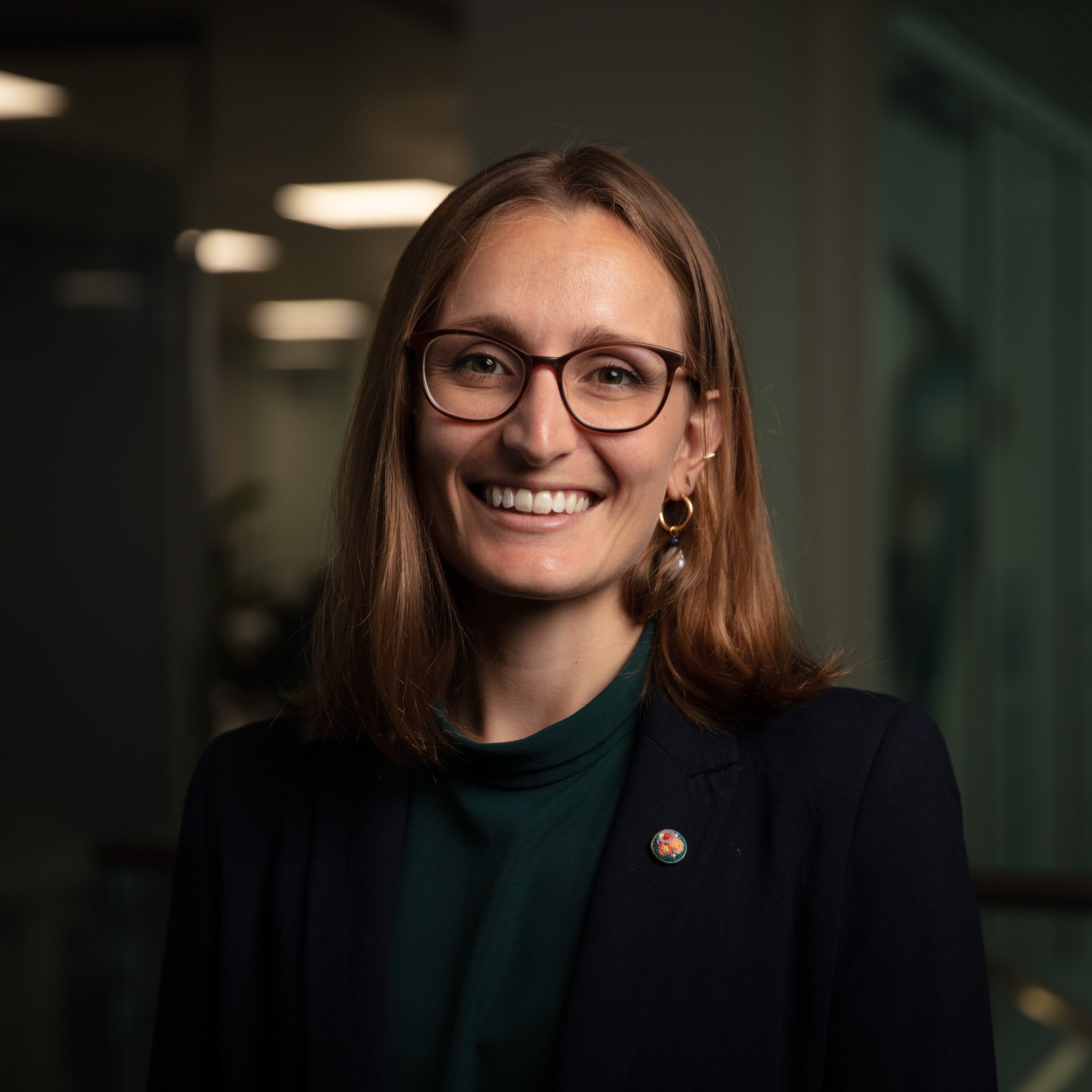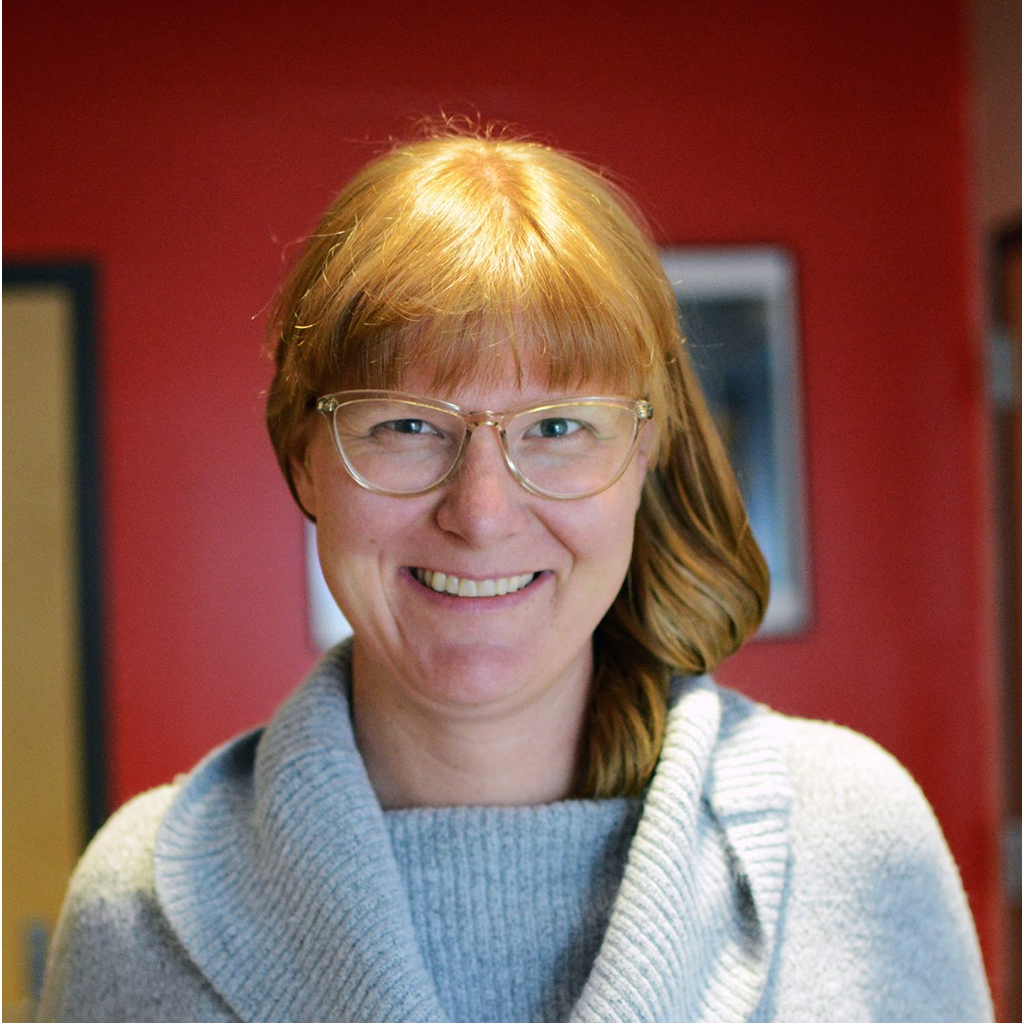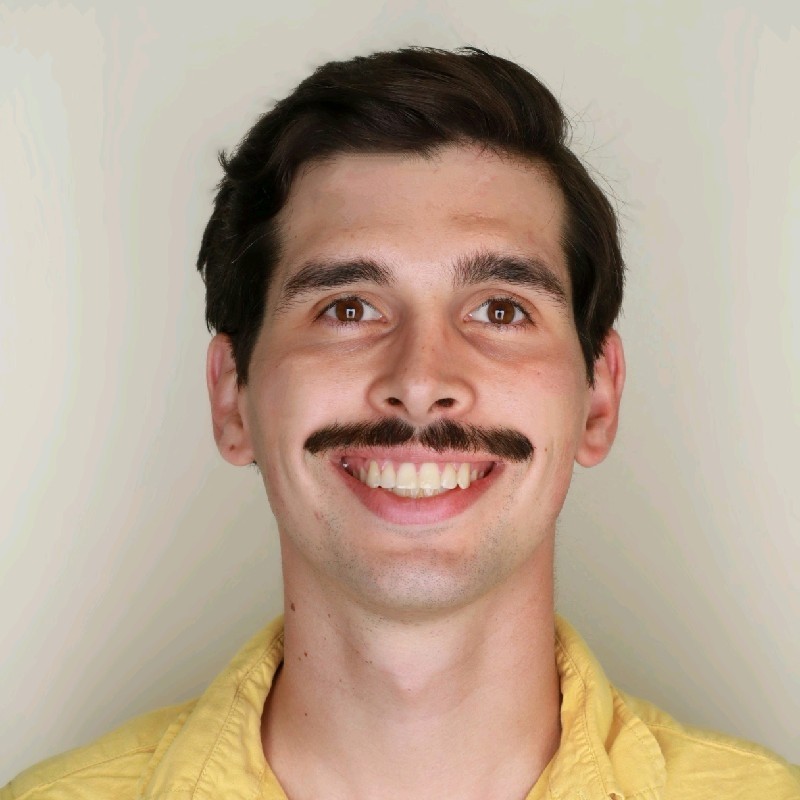Overview
Our goal for this workshop is to educate researchers about the technological needs of people with vision impairments while empowering researchers to improve algorithms to meet these needs. A key component of this event will be to track progress on six dataset challenges, where the tasks are to answer visual questions, ground answers, recognize visual questions with multiple answer groundings, recognize objects in few-shot learning scenarios, locate objects in few-shot learning scenarios, and classify images in a zero-shot setting. The second key component of this event will be a discussion about current research and application issues, including invited speakers from both academia and industry who will share their experiences in building today’s state-of-the-art assistive technologies as well as designing next-generation tools.
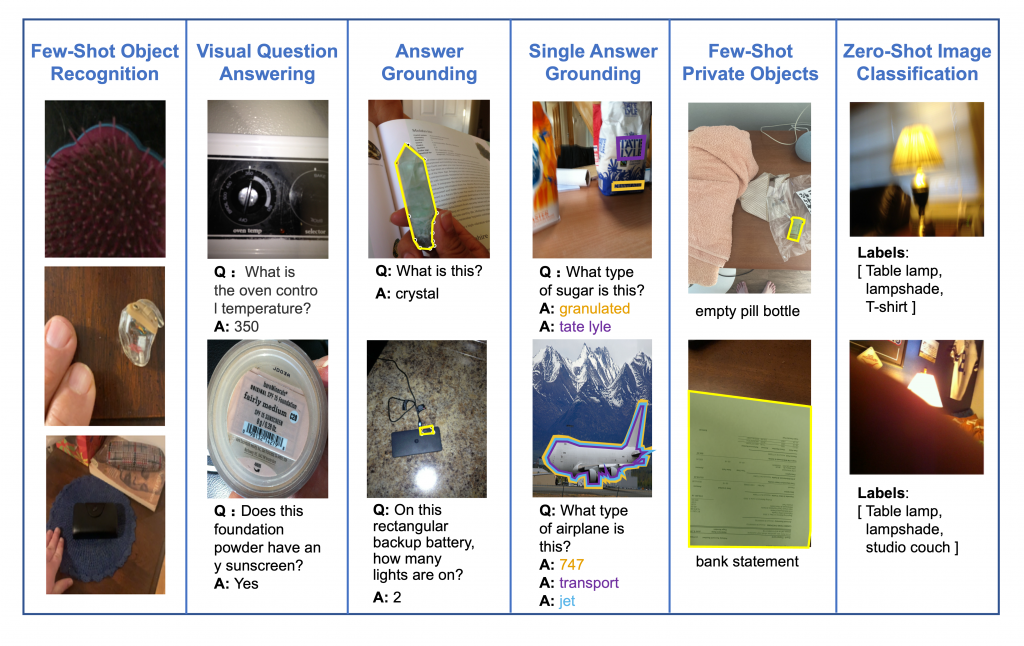
Important Dates
- Thursday, January 11: challenge submissions announced
- Friday, January 12 [9:00 AM Central Standard Time]: challenges go live
- Friday, May 3 [9:00 AM Central Standard Time]: challenge submissions due
- Friday, May 10 [9:00 AM Central Standard Time]: extended abstracts due
- Friday, May 17 [5:59 PM Central Standard Time]: notification to authors about decisions for extended abstracts
- Tuesday, June 18: Half-day workshop
Submissions
We invite two types of submissions:
Challenge Submissions
We invite submissions about algorithms for the following six challenge tasks: visual question answering, answer grounding, single answer grounding recognition, few-shot video object recognition, few-shot private object localization, and zero-shot image classification. We accept submissions for algorithms that are not published, currently under review, and already published.
The teams with the top-performing submissions will be invited to give short talks during the workshop.
Extended Abstracts
We invite submissions of extended abstracts on topics related to all challenge tasks as well as assistive technologies for people with visual impairments. Papers must be at most two pages (with references) and follow the CVPR formatting guidelines using the provided author kit. Reviewing will be single-blind and accepted papers will be presented as posters. We will accept submissions on work that is not published, currently under review, and already published. There will be no proceedings. Please send your extended abstracts to workshop@vizwiz.org.
Please note that we will require all camera-ready content to be accessible via a screen reader. Given that making accessible PDFs and presentations may be a new process for some authors, we will host training sessions beforehand to both educate and assist all authors to succeed in making their content accessible.
Challenge Results
- Visual Question Answering
1st place: SLCV from Shopline AI Research (Baojun Li, Jiamian Huang, and Tao Liu)
2nd place: v1olet
3rd place: KNU-HomerunBall - Visual Question Answering Grounding
1st place: MGTV from Mango TV (Kang Zhang, Yi Yu, Shien Song, Haibo Lu, Jie Yang, Yangke Huang and Hongrui Jin)
2nd place: ByteDo
3rd place: UD VIMS Lab - VQA-AnswerTherapy
1st place: MGTV from Mango TV (Yi Yu, Kang Zhang, Shien Song, Haibo Lu, Jie Yang, Yangke Huang, Hongrui Jin)
2nd place: SLCV
3rd place: SIAI - ORBIT
1st place: ECO AI from SK ecoplant, South Korea (Hyunhak Shin, Yongkeun Yun, Dohyung Kim, Jihoon Seo, and Kyusam Oh) - BIV-Priv
1st place: tele-ai-a from China Telecom Artificial Intelligence Technology (Beijing) Co. and Xi’an Jiaotong University (Rongbao Han, Zihao Guo, Jin Wang, Tianyuan Song, Hao Yang, Jinglin Yang, and Hao Sun)
2nd place: ByteDo - Zero-Shot VizWiz-Classification
1st place: HBNUE from Hanbat National University (Huiwon Gwon, Sunhee Jo, Hyejeong Jo, and Chanho Jung)
2nd place: DoubleZW
3rd place: TeleCVG
Program
Location:
Summit 435, Seattle Convention Center [map]
Address: 900 Pine Street Seattle, WA 98101-2310
Schedule:
- 8:00-8:15 am: Opening remarks
- 8:15-8:30 am: Overview of three challenges related to VQA (VQA, Answer Grounding, Single Answer Grounding Recognition), winner announcements, and talks by challenge winners
- 8:30-9:00 am: Invited talk and Q&A with computer vision researcher (Soravit Beer Changpinyo)
- Talk title: “Toward Vision and Richer Language(s)”
- 9:00-9:30 am: Invited talk and Q&A with OpenAI representatives (Raul Puri and Rowan Zellers)
- Talk title: “Challenges in Deploying Omnimodels and Assistive Technology: Where we are and what’s next?”
- 9:30-9:45 am: Poster spotlight talks
- 9:45-10:30 am: Poster session (at Arch Building Exhibit Hall) and break
- 10:30-10:45 am: Overview of three zero-shot and few-shot learning challenges (few-shot video object recognition, few-shot private object localization, zero-shot classification), winner announcements, and talk by challenge winner
- 10:45-11:15 am: Invited talk and Q&A with blind comedian and writer (Brian Fischler)
- Talk title: “Will Computer Vision and A.I. Revolutionize the Web for People Who Are Blind?”
- 11:15-11:45 am: Invited talk and Q&A with linguistics expert, Elisa Kreiss
- Talk title: “How Communicative Principles (Should) Shape Human-Centered AI for Nonvisual Accessibility”
- 11:45-12:15 pm: Open Q&A panel with five invited speakers
- 12:15-12:20 pm: Closing remarks
Invited Speakers and Panelists:
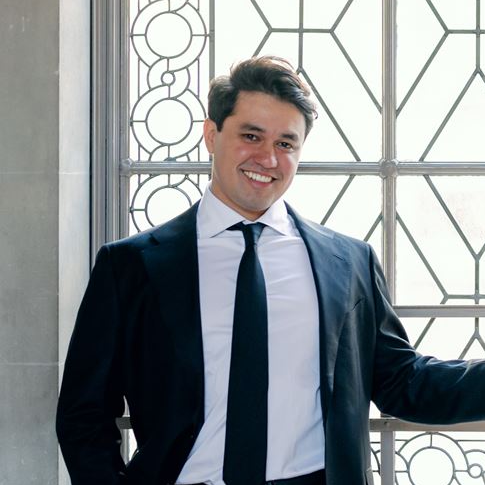
Raul Puri
Deep Learning Researcher
OpenAI
Poster List
- Integrating Query-aware Segmentation and Cross-Attention for Robust VQA
Wonjun Choi, Sangbeom Lee, Seungyeon Lee, Heechul Jung, and Dong-Gyu Lee
Paper - Leveraging Large Vision-Language Models for Visual Question Answering in VizWiz Grand Challenge
Bao-Hiep Le , Trong-Hieu Nguyen-Mau, Dang-Khoa Nguyen-Vu , Vinh-Phat Ho-Ngoc , Hai-Dang Nguyen , and Minh-Triet Tran
Paper - Visual Question Answering with Multimodal Learning for VizWiz-VQA
Heegwang Kim, Chanyeong Park, Junbo Jang, Jiyoon Lee, Jaehong Yoon, and Joonki Paik
Paper - Shifted Reality: Navigating Altered Visual Inputs with Multimodal LLMs
Yuvanshu Agarwal and Peya Mowar
Paper - The Manga Whisperer: Making Comics Accessible to Everyone
Ragav Sachdeva and Andrew Zisserman
Paper - Vision-Language Model-based PolyFormer for Recognizing Visual Questions with Multiple Answer Groundings
Dai Quoc Tran, Armstrong Aboaj, Yuntae Jeon, Minsoo Park, and Seunghee Park
Paper - Technical Report for CVPR 2024 VizWiz Challenge Track 1-Predict Answer to a Visual Question
Jinming Chai, Qin Ma, Kexin Zhang, Zhongjian Huang, Licheng Jiao, and Xu Liu
Paper - Refining Pseudo Labels for Robust Test Time Adaptation
Huiwon Gwon, Sunhee Jo, Heajeong Jo, and Chanho Jung
Paper - A Zero-Shot Classification Method Based on Image Enhancement and Multimodal Model Fusion
Jiamin Cao, Lingqi Wang, Yujie Shang, Lingling Li, Fang Liu, and Wenping Ma
Paper - Few-Shot Private Object Localization via Support Token Matching
Junwen Pan, Dawei Lu, Xin Wan, Rui Zhang, Kai Huang, and Qi She
Paper - Distilled Mobile ViT for VizWiz Few-Shot Challenge 2024
Hyunhak Shin, Yongkeun Yun, Dohyung Kim, Jihoon Seo, and Kyusam Oh
Paper - Propose, Match, then Vote: Enhancing Robustness for Zero-shot Image Classification via Cross-modal Understanding
Jialong Zuo, Hanyu Zhou, Dongyue Wu, Wenxiao Wu, Changxin Gao, and Nong Sang
Paper
Organizers
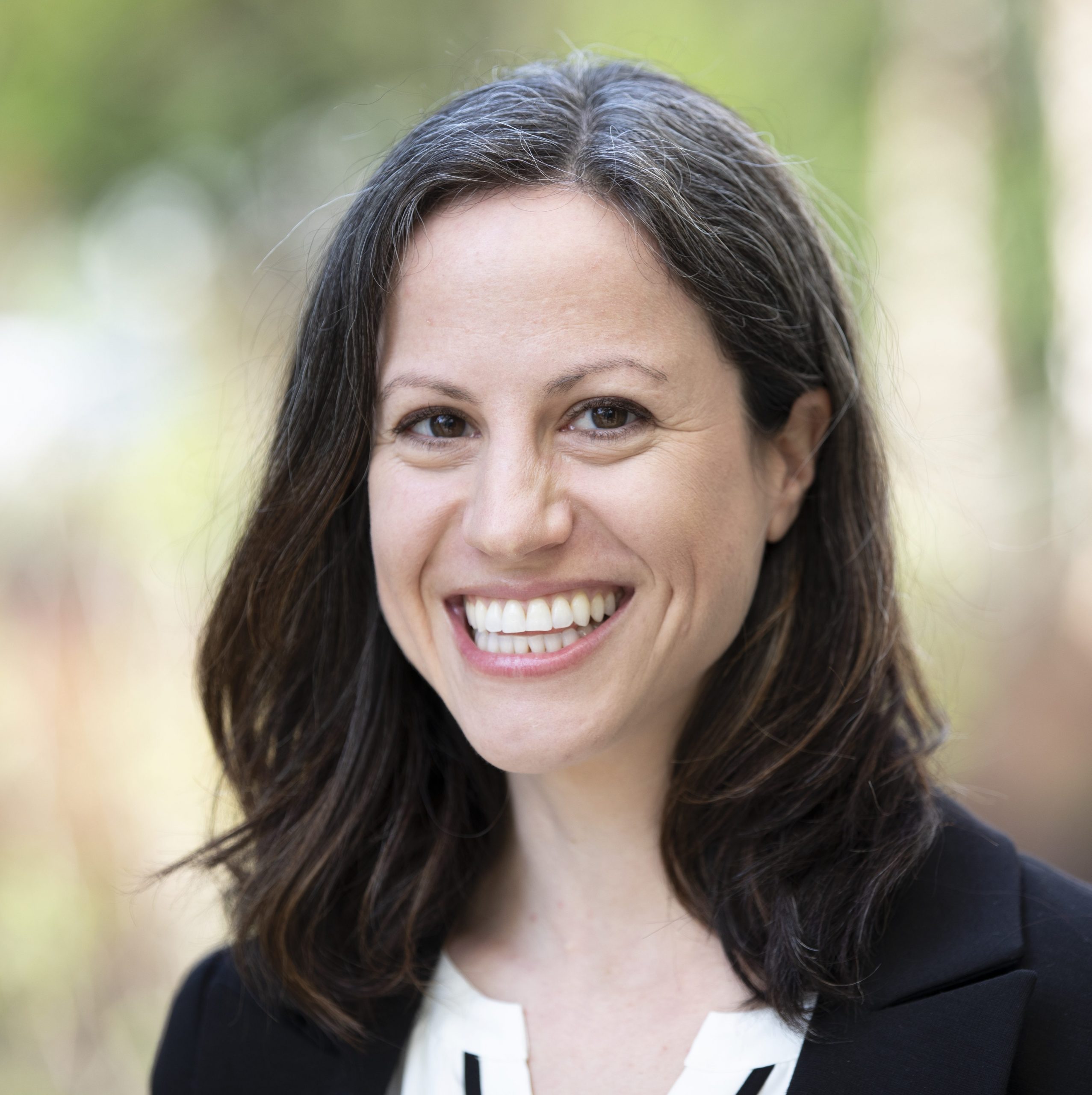
Danna Gurari
University of Colorado Boulder

Jeffrey Bigham
Carnegie Mellon University, Apple

Ed Cutrell
Microsoft

Chongyan Chen
University of Texas at Austin
Contact Us
For questions, comments, or feedback, please send them to Danna Gurari at danna.gurari@colorado.edu.
Sponsor


